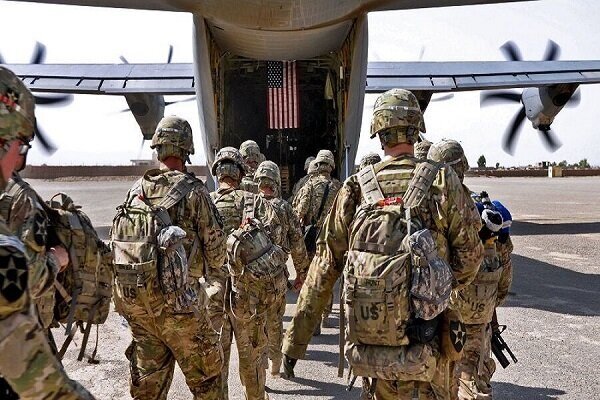It was in January 2020 when members of the Iraqi parliament, who were generally from Shiite political currents and groups, decided to issue a resolution to expel foreign troops from Iraq. This happened two days after the assassination of Sardar Soleimani and Abu Mahdi Al-Muhandes, the high-ranking Resistance commanders by the United States. Therefore, clearly, the resolution which some considered as non-binding, targeted the US troops. The forces entered the country at the request of Baghdad in 2014 as part of the International Coalition against ISIS, and stationed at 12 military bases.
Since then, and after parliamentary resolution, numerous known and even unknown battalions in Iraq have carried out numerous attacks on the US military bases and convoys, and on the opposite side, the United States has carried out deadly attacks against those groups. On the other hand, such actions and pressures of Shiite political groups on the interim government of al-Kadhimi to implement the parliament resolution during the strategic negotiations between Baghdad and Washington, eventually led to an agreement for ending the military mission of the US-led International Coalition forces by the end of 2021.
Finally, the International Coalition (US) announced that it had withdrawn its combat forces from Iraq before the end of the year, leaving responsibility of its military bases to Iraqi security forces, and only its advisory forces which are supported by Iraqi forces are stationed at the two bases of Al-Harir and Ain Al-Assad; as issue which was also approved and emphasized by Prime Minister Mustafa Al-Kadhimi. He announced on December 29 that the coalition had completed transfer of its combat troops and equipment outside Iraq. Earlier, on December 9, Qasim al-Araji, Iraq’s National Security Adviser, who happens to be a senior leader of the Badr Organization, announced the final agreement for the withdrawal of the coalition forces.
The coalition statement and Al-Kadhimi’s remarks were not accepted by some Shiite political groups and Resistance groups. They said the announcement of the withdrawal of the US troops was contradictory and unrealistic and that US troops had not left. Qais al-Khazali, the leader of Asa’ib Ahl al-Haq, said in a speech on December 26, the day the coalition announced as the end of the withdrawal, that the United States had no real plan for a military withdrawal and was seeking to change the title of its military forces from a combat force to an advisory force. He also said that the irrational number of 2,500 American advisers could not be accepted. Determining the required number is with the Iraqi technical parties, and should not to be specified by Washington. He also threatened to give a response if American forces did not back down on the terms of the Resistance.
Abu Ala al Walai, secretary general of Sayyid al-Shuhada Brigades, also on Friday January 7 implicitly announced the continued presence of US troops by calling the US as occupier, saying that the US occupiers were still seeking to stay in Iraq.
However, after the start of the New Year, rocket attacks on Victoria and Ain Al-Assad bases continued; an issue which shows that the Resistance forces do not believe in the withdrawal of American troops from Iraq. Kazem Al-Fartousi, the spokesperson for Sayyid al-Shuhada Brigades, said after the missile attacks that the targeting of American forces was a natural consequence of their non-withdrawal from the country and that the operation would continue more seriously.
Such attacks on US military bases in Iraq are expected to continue. Of course, it is not clear what the reaction will be to those attacks. In particular, Iraq is now responsible for maintaining the security of the remaining US forces, as it has been agreed.
In addition, such attacks are likely to continue, at least until the next government is formed. Of course, it is not possible to say for sure what will happen in the new government, but for example, the coming to power of a government that is critical of the actions of the Resistance groups can put them in a bottleneck. As if the relative stability resulting from the formation of the new government, which of course has a serious relationship with the way it is formed, can play a serious role in the continuation of such attacks.
However, it cannot be accepted that with the announcement of the withdrawal of the coalition forces, a complicated case full of ups and downs, between the United States and the groups known as the Resistance, would be completely closed soon.










0 Comments